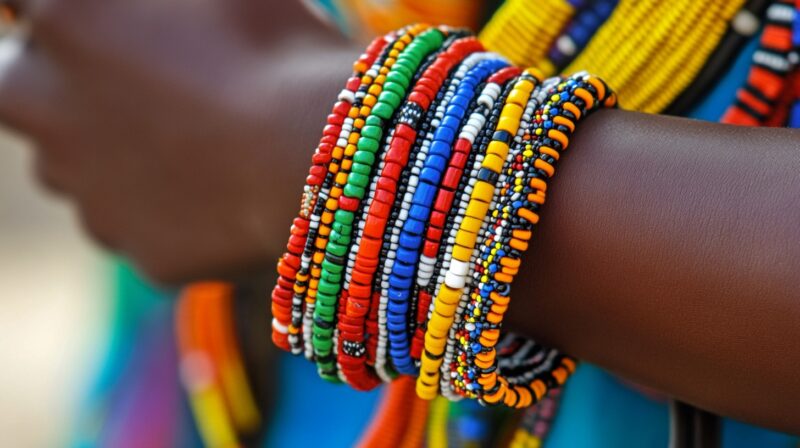East Africa is a treasure trove for travelers looking to bring home unique and meaningful souvenirs.
These treasures are not just mere items but stories of the people and places you visit, adding a personal touch to your travel memories.
Let us see what are the best ones you can find in this part of the world.
10) Zanzibar Spices
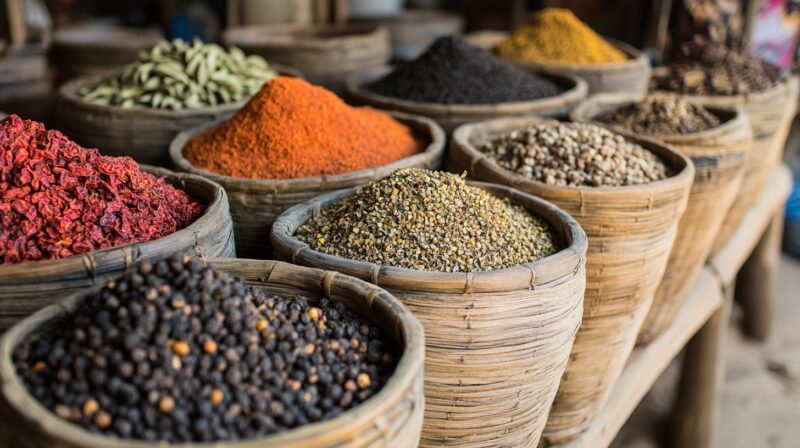
Zanzibar is famous for its spices, and when you visit, don’t miss the chance to bring some home. The island’s spice markets are filled with scents like cloves, cinnamon, and cardamom.
Cloves are particularly notable, as Zanzibar is one of the world’s leading producers. These spices can be used in cooking to add flavor to your dishes.
Cinnamon from Zanzibar has a sweet taste, perfect for baking. You can also find turmeric and vanilla, which are great for adding to recipes or even teas.
Buying spices directly from local markets supports the community, and many spices come in small, easy-to-pack bags, making them convenient souvenirs.
Visiting a spice farm is a popular activity in Zanzibar, offering a hands-on experience to see how these spices are grown.
You can also find spice blends and ready-to-use mixtures for various dishes that bring a taste of Zanzibar to your kitchen back home.
Don’t forget to explore unique spice-infused products like soaps and oils. These make great gifts and add a little extra touch of Zanzibar’s essence.
For all those old-fashioned people who prefer keeping photo-albums to keep their memories, consider using a postcard maker and then print incredibly unique photos from your vacation.
9) Swahili Handicrafts
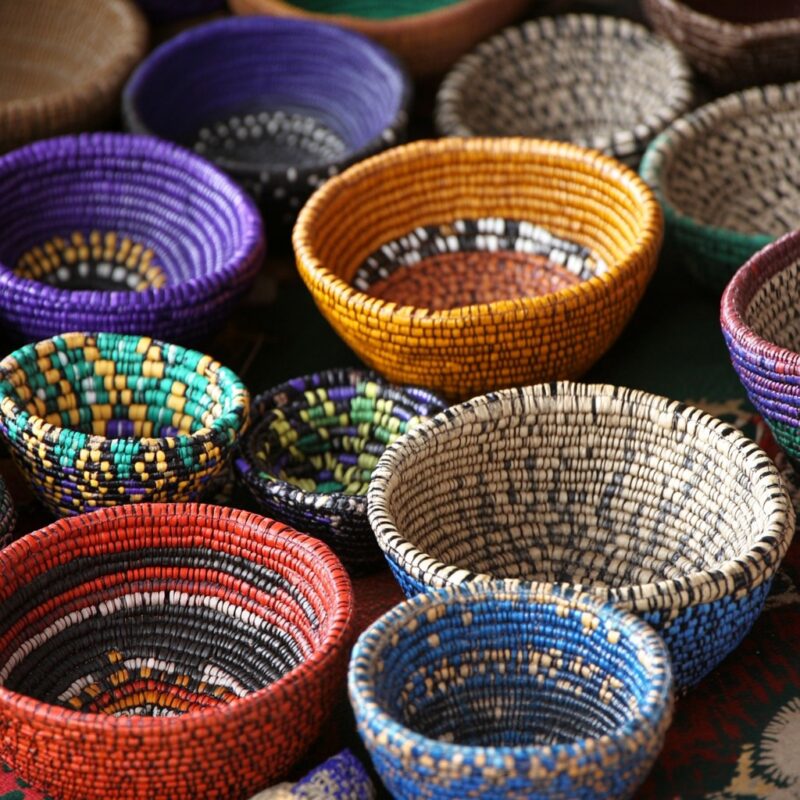
Swahili handicrafts showcase the vibrant culture of the coastal regions of Kenya, Tanzania, Somalia, and Mozambique. These handmade items are known for their intricate designs and rich cultural significance.
One popular item is the kikoi, a type of woven cloth often used as a wrap or scarf, available in various colors and patterns, making them a versatile accessory.
Carved wooden items, such as masks and sculptures, are another highlight, with craftsmanship often detailed, reflecting the skill of Swahili artisans.
Swahili jewelry, including necklaces, bracelets, and earrings made from natural materials like beads and shells, should not be missed.
These handicrafts serve as beautiful keepsakes and help support local artisans and their communities. Each item carries a piece of Swahili heritage, making it a meaningful souvenir to bring home.
8) Ugandan Barkcloth
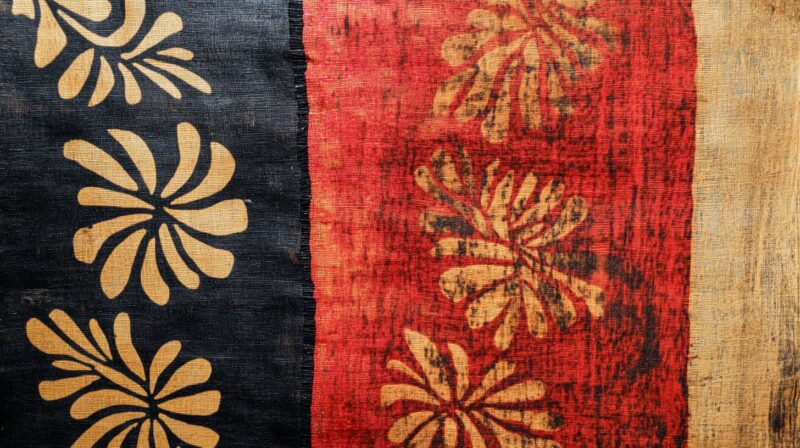
Ugandan Barkcloth is a unique and traditional fabric made from the inner bark of the Mutuba tree, crafted for centuries by the Baganda people in the town of Masaka, Uganda.
The process of making barkcloth involves carefully peeling the bark and then pounding it into a soft, felt-like fabric. This method is eco-friendly and sustainable, making it an ideal souvenir for eco-conscious travelers.
Barkcloth is historically significant in Uganda, once used in spiritual rituals by Baganda witches and mediums. Today, it’s popular for its beauty and environmental benefits.
Local artisans transform barkcloth into various items like clothing, accessories, and household decor, providing income to many families and supporting local economies.
Buying Ugandan Barkcloth helps promote sustainable practices and supports small-scale farmers and artisans, making it a meaningful and ethical souvenir that reflects Uganda’s rich cultural heritage.
7) Soapstone Carvings
Soapstone carvings from East Africa are perfect souvenirs, primarily made from Kisii soapstone, which comes from southwestern Kenya.
The stone is known for its softness, making it easy for local artisans to carve intricate designs.
You can find these unique and beautiful handicrafts in the form of statues, vases, bowls, and other items.
The natural colors of the soapstone, which range from pink to white, add to its charm and appeal.
When shopping for soapstone carvings, visit market stalls and city shops in Kenya, where you’ll find a wide variety of handmade pieces.
Remember that the initial price may be high, so negotiation might be necessary to get a good deal.
Choosing a soapstone carving means supporting local artisans, many of whom have been practicing their art for generations. Each piece you buy carries a bit of that history and tradition.
Soapstone carvings are not only beautiful but also practical, making great decorative items for your home or office.
Plus, smaller pieces can easily fit in your luggage, making them convenient gifts for friends and family.
6) Kitenge Cloth
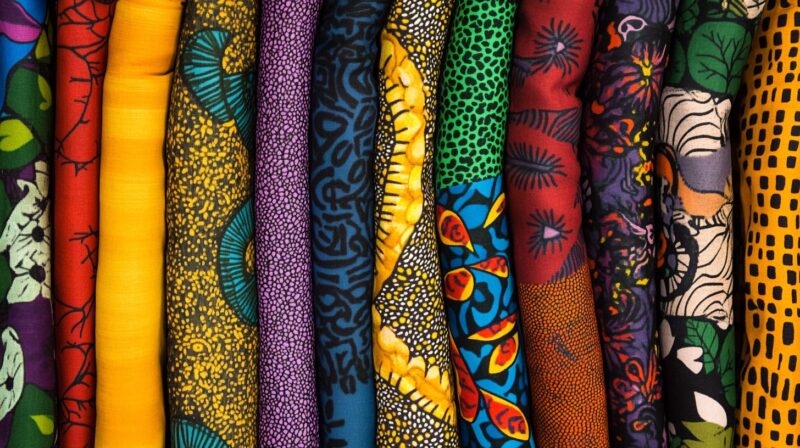
Kitenge cloth is one of the most vibrant and culturally rich fabrics you can find in East Africa, known for its bold colors and intricate designs, speaking volumes about African traditions.
You can use Kitenge cloth to make dresses, skirts, or head wraps. It’s also popular for home decorations like tablecloths and pillow covers. Each piece of Kitenge tells a story through its patterns and colors, representing the moods, feelings, and traditions of the people.
In Uganda, the Kitenge is often referred to as the “communicating textile” because of the symbols and writings it may include. These fabrics are common across East Africa, especially in countries like Rwanda and Tanzania.
In markets, you’ll find rows of Kitenge fabric from different countries, including Uganda, Ghana, and Senegal, each offering its unique twist on the designs and colors.
5) Kenyan Coffee

Kenyan coffee is a must-have souvenir for any coffee lover visiting East Africa, known for its rich flavor and aromatic profile, considered one of the best coffees in the world. Kenya is also among the biggest coffee producers in the world.
You can find it sold in both whole bean and ground form at various markets and shops in Kenya.
When you buy Kenyan coffee, you are getting coffee grown in high-altitude regions with fertile soil, resulting in beans that are full-bodied and have bright acidity. The taste often includes fruity and wine-like notes, making it unique compared to other coffees.
For an immersive experience, you can visit a coffee farm in Nairobi to learn about the production process, seeing how the beans are grown, harvested, and processed. You might even have the chance to roast your own beans to take home.
Purchasing coffee directly from local farmers or markets is also a great way to support the local economy, giving you a connection to the place and people who cultivate this exceptional product.
4) Tanzanite Gemstones

Tanzanite gemstones are a unique and stunning souvenir you can find only in Tanzania. Discovered in the 1960s, these gemstones are named after the country where they were first found. Their shimmering blue-violet hues make them stand out from other gems.
You can buy Tanzanite in various forms, from loose stones to beautifully crafted jewelry. The rich color and rarity of Tanzanite make it a prized possession for collectors and jewelry lovers alike.
Tanzanite gemstones are graded based on their color, clarity, and size, with deep blue stones with a hint of violet being the most valuable. Prices can vary widely, so it’s important to purchase from reputable sellers.
When you visit Tanzania, consider checking out local shops or gemstone markets, where you might find Tanzanite pieces that fit your style and budget, making for a memorable and lasting memento from your trip to East Africa.
3) Khanga Fabric
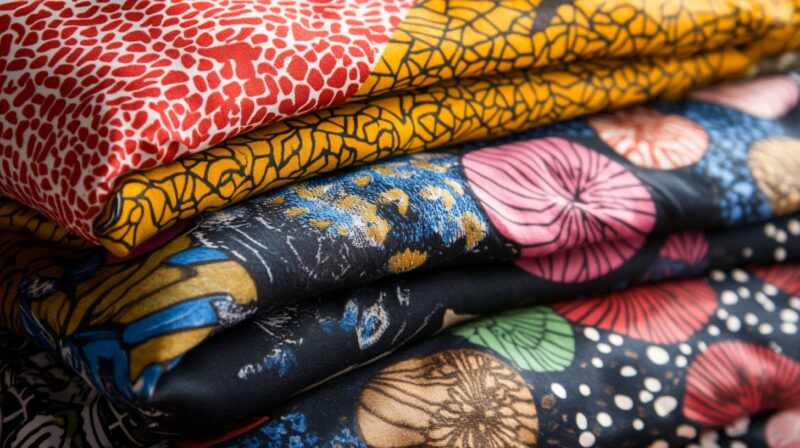
When visiting East Africa, Khanga fabric stands out as a must-have souvenir. This traditional cloth is more than just a piece of fabric; it’s a symbol of culture, art, and history.
Khanga fabric is usually made of cotton and features vibrant colors and bold patterns, with each piece unique, often displaying Swahili proverbs and sayings at the bottom, conveying social, moral, or even humorous themes.
The origin of Khanga dates back to the 19th century on the island of Zanzibar. Since then, it has become popular across the region, especially in Tanzania and Kenya, commonly worn by women as skirts, dresses, or headscarves.
What makes Khanga even more special is its versatility, as it can be used as clothing, home decor, or even as a gift wrap. Many tourists love buying Khanga because it allows them to bring a piece of East African culture back home.
Next time you visit a market in East Africa, look out for Khanga fabric, a beautiful and meaningful keepsake that captures the essence of the region.
2) Maasai Beaded Jewelry
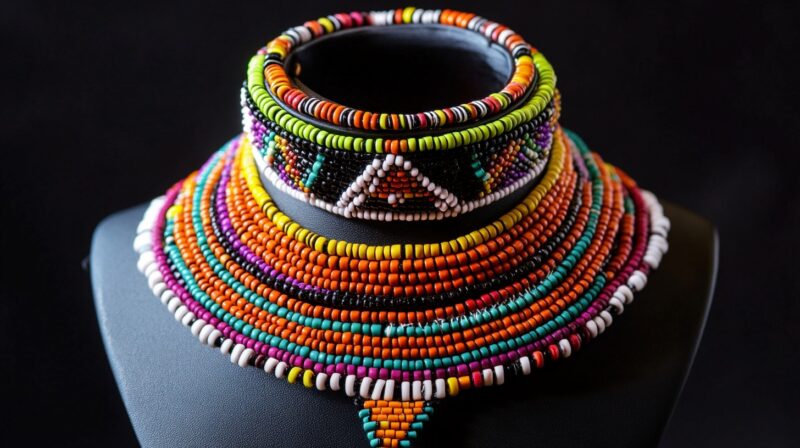
Maasai beaded jewelry is a stunning and vibrant accessory that you will love, handmade by the Maasai people, and known for their colorful and intricate beadwork. The jewelry often includes necklaces, bracelets, and earrings.
Each piece holds cultural significance and tells a story, with the colors and patterns used in the beadwork representing different aspects of Maasai life. Red symbolizes bravery, blue represents the sky, and green stands for health.
You can find Maasai beaded jewelry in various markets, including the Maasai Market in Nairobi. These pieces make perfect souvenirs, capturing the essence of East African culture.
The jewelry is not only beautiful but also supports local artisans and their traditions.
1) Ethiopian Crosses
Ethiopian crosses are unique and carry deep religious and cultural significance, reflecting Ethiopia’s rich
Christian heritage dating back to the fourth century when the country converted to Christianity under Emperor Ezana.
The designs of these crosses are intricate and varied, often featuring complex geometric patterns and motifs symbolizing eternity and faith, a testament to the high level of craftsmanship in Ethiopia.
Ethiopian crosses are usually made from materials like silver or brass, with some adorned with beautiful stones, adding to their elegance. You can find them as pendants, necklaces, or wall decorations, making them versatile souvenirs.
Many of these crosses were traditionally made by Jewish silversmiths, whose legacy lives on in the exquisite craftsmanship seen in these items.
Purchasing an Ethiopian cross is not just about owning a piece of jewelry or decoration but also about connecting with Ethiopia’s rich history and religious traditions.
The Bottom Line
East Africa offers a wealth of unique and memorable souvenirs.
You’ll find these souvenirs in market stalls, city shops, and even online, allowing you to take a piece of Africa with you back home.
Also Read: Discover more about the geological significance and beauty of the Great Rift Valley, click here.

